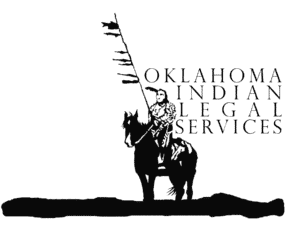Importance of a Will
Having a will in place is vital to make sure that your possessions are handled the way that you want them to be and that your loved ones receive everything that you want to leave them. This page provides information about why having a will is important, steps you could take to create one, steps you could take if you lost someone due to a disaster, and more.
A relative died because of the disaster. What should I do?
1. Collect and freeze the assets of Decedent.
- This means that you should not use or give away any of your relative’s assets (money and/or property). If a court case is filed to probate the estate, the court will appoint a personal representative who will take temporary possession and control of all the deceased’s property.
- If you improperly give away any property or money, the person who received the property or money (the distributee) must return the money or property to the estate.
2. Find out if there is a will. To determine if the decedent had a will, search the places that wills are typically kept:
- Safe or locked box
- Safety deposit box
- The decedent’s personal files
- With a trusted friend or relative
- With the decedent’s attorney
- The courthouse that has jurisdiction over the decedent’s county
If the decedent’s home was destroyed by the disaster, finding the will may be impossible in the debris. Therefore, the best source for finding the will would be with the decedent’s attorney or if the decedent had a safety deposit box with a bank.
It is an innovative idea for anyone who has a will to tell their loved ones where the will is going to be kept or that a copy of that will is with their attorney. Oklahoma Law allows a testator (the one executing the will) or their agent to file their will with the court that has jurisdiction over the testator’s residence for safekeeping. You can notify the court of the testator’s death and then the court can notify and send the will to the selected person, or the court can send the will to another “appropriate court.”
Oklahoma Law requires anyone in possession of a decedent’s will to deliver the will to the district court having jurisdiction, or to the executor named therein. If this is not done, that person may be liable for damages for the failure to deliver the will. Determine if a probate will be required. Sometimes property is owned by more than one person. If your relative owned property with someone else, such as a joint bank account, that property will now be owned by the remaining account holder.
Other times, someone may be named as a beneficiary on an account. If that is the case, then the account will transfer to the beneficiary. Contact the financial institution for information on whether there is a beneficiary and what information is necessary to transfer the account. Assets such as an automobile may have a transfer on death designation on the title. If so, contact the DMV to transfer title to the person designated. Real estate may also be jointly owned or may have a transfer on death designation.
Wills and Estates
You can use a small estate affidavit to transfer property when the following are true:
- The value of all the deceased’s entire estate does not exceed $50,000.
- The deceased died more than ten days ago, as shown in a certified copy of the death certificate attached to the affidavit.
- Appointment of a personal representative is not pending or has not been granted.
- No other person has a right to the property or everyone who has inherited an interest in the property also signs the affidavit. A creditor can seek to recover the property from you for a debt of the deceased if the creditor files for probate within five (5) years of the breach of the written contract. However, you are not personally liable for the debt of the decedent. Instead, the decedent’s estate is liable for the debt. Any person who knowingly submits and signs a false affidavit as provided in this section shall be fined not more than $3,000.00 or imprisoned for not more than six (6) months, or both. Restitution of the amount fraudulently attained shall be made to the rightful beneficiary by the guilty person.
If your relative had a trust, it may be unnecessary to file a probate. Contact the attorney that prepared the trust or a Trust and Estate attorney to find out how to distribute the property through the trust.
- If a probate is required, immediately set up an appointment with a probate attorney. The attorney will open the estate by filing a court action for a probate. After this, a personal representative will be chosen to settle any debts of estate and allocate the remaining assets.
- The attorney will need biographical information of the decedent, and you should be prepared to give the attorney the following information:
1. For the decedent:
- Name, address, date of birth, Social Security number, marital status, family information
- Copy of the death certificate
- Whether the decedent had a safe deposit box, an attorney, accountant, financial planner, insurance agent
- Detailed information regarding all the deceased’s assets (accounts, investments, certificates, stocks, bonds, etc.)
- Detailed information of the decedent’s retirement plan
- Whether the decedent owned a business or was a partner in a business
- Whether the decedent had life insurance
- The personal property owned by the decedent
- Information regarding any debts of the decedent
2. For the potential Personal Representative:
- Name, address, phone, email, date of birth, Social Security number, marital status, family information
- If a surety bond is required, the personal representative must have this before s/he can become the personal representative. The attorney will be able to explain if a bond is needed and how much it will be.
3. For all known heirs:
- Name, address, phone, email, date of birth, Social Security number, marital status, family information.
The court will appoint a personal representative to administer the estate. Typically, if there is no will, the surviving spouse or another heir will become the personal representative. The person wishing to be the personal representative must file with the court “any required bond and a statement of acceptance of the duties of the office.”
The personal representative will take temporary possession and control of all the decedent’s property. It is the personal representative’s job to pay off any creditors, transfer property, and pay taxes. Within the first two months of appointment, the personal representative will be responsible for inventorying (making a list) all the decedent’s property owned at the time of their death along with an estimate of their worth. This list of inventories must be sent to the court. If the personal representative’s management of the estate is deemed improper, they may be held personally liable to anyone who suffered damage because of the personal representative’s improper management.
Additionally, if a judge has reason to believe, from his own knowledge or from credible information, that any personal representative has wasted, embezzled, or mismanaged property of the estate, the judge must suspend the powers of the personal representative until the matter is investigated.
Distribution of Assets
No claim can be enforced against an estate until a personal representative has been appointed. If the estate is not big enough to settle all of debts, Oklahoma law requires the personal representative to make payments in the following order:
- Funeral expenses
- Expenses of the last sickness
- Funds necessary for the support of the family and allowed by the court pursuant to Chapter 10
- Taxes to the United States or the state, county, or city
- Debts having preference under the laws of the United States and of this state.
- Judgments rendered against the decedent in his lifetime, which are liens upon his property and mortgages in the order of their date
- Demands or claims which are presented to the executor or administrator for an allowance or proved within two (2) months after the first publication of notice to creditors
- All other demands against the estate except those set forth in paragraph 9 of this section
- Interest resulting from the extension of time for payment of federal estate or transfer taxes. Such interest shall be a cost of administration but shall not be deductible in arriving at the Oklahoma net taxable estate under Section 808 (g) of Title 68.
Additionally, if the estate is insufficient to pay the debts of any one class, each creditor must be paid a dividend in proportion to his claim, and no creditor of any class shall receive any payment until all those of the preceding class are fully paid. If the estate is large enough to pay off all debts, what is left over will be distributed to the decedent’s heirs.







